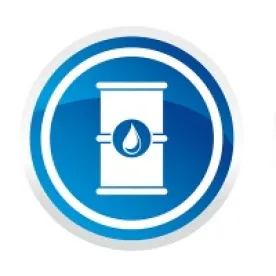The Gabonese oil and gas industry shifted into “full steam ahead” mode in 2014. Confronted with over a decade of falling oil production, Gabon has decided to actively engage with the industry that still accounts for 80-90% of its total export earnings. On 4 August, Gabon completed a 13-block offshore licencing round which was launched in 2013 and on 28 August, the long-awaited new Petroleum Code became law. It is also rumoured that a further licensing round will be launched in Q3 of 2015 after the government completes the interpretation of 3D seismic data that is currently being acquired. The message from Gabon is that it is open for business and keen to attract foreign investment in the oil and gas sector.
New Petroleum Code
Prior to the adoption of the new Petroleum Code, Gabon’s petroleum industry was governed by the outdated Petroleum Code of 1983. The new Petroleum Code was finally adopted as the new Petroleum Law on 28 August 2014 and published in the Official Gazette on 15 September 2014.
Despite some commentary that the new Petroleum Code grants the Gabonese state too much influence over the oil and gas industry, existing players and new entrants do not seem to have been put off. Indeed, in October 2014, after the new Petroleum Code finally became law, Ophir Energy expanded its footprint offshore Gabon by adding two further licences to its portfolio.
Licensing Round
The 2013 licensing round targeted blocks in the deep and ultra-deep waters offshore Gabon.
As a result of the round, six companies were awarded licenses, being Noble Energy Inc, partnering with Woodside Petroleum Ltd, Marathon Oil Corporation, Impact Oil & Gas Ltd, Repsol SA and Petronas. With the exception of the licenses acquired by Noble and Woodside, each of the other companies acquired a 100% interest in their respective licences, giving rise to a number of farm-in opportunities. Given the water depth of the blocks, it is assumed that most companies will look for a partner to share their exploration risk.
Upon acquiring the licences, each company entered into a production sharing contract with the Gabonese government. Although the PSCs were signed prior to the coming into force of the new Petroleum Code and are stated to be subject to the old Petroleum Code of 24 January 1983, they were drafted and negotiated with the new Petroleum Code in mind. Furthermore, the new Petroleum Code confirms that any hydrocarbon contracts, production permits or petroleum rights granted prior to the entry into force of the new Petroleum Code shall remain in effect until their expiry.
Some of the PSCs signed in August 2014 have now been ratified, triggering the beginning of exploration phases under these PSCs.
Key Discoveries and Developments
Existing market players also had a fruitful 2014, with a number of key discoveries being announced.
In July 2014, Eni SPA announced a gas and condensates discovery offshore Gabon, in block D4. Eni estimates that the new gas discovery may be significant, with initial potential in place estimated at 500 million boe.
In October 2014, Royal Dutch Shell announced a frontier exploration discovery offshore Gabon in a pre-salt reservoir within block BCD10, which Shell operates. The other partner in the venture is CNOOC with a 25% interest.
With the waters offshore Gabon being seen as geologically analogous to the waters offshore Brazil, it is hoped that continued deep and ultra-deep exploration offshore Gabon will result in a similar pre-salt boom in Gabon. It will be interesting to see whether those companies that missed out on the 2014 licensing round will be able to take a long term view of the oil and gas market, look for farm-in or new licence opportunities and continue the resurgence of Gabon’s oil and gas industry.



 />i
/>i